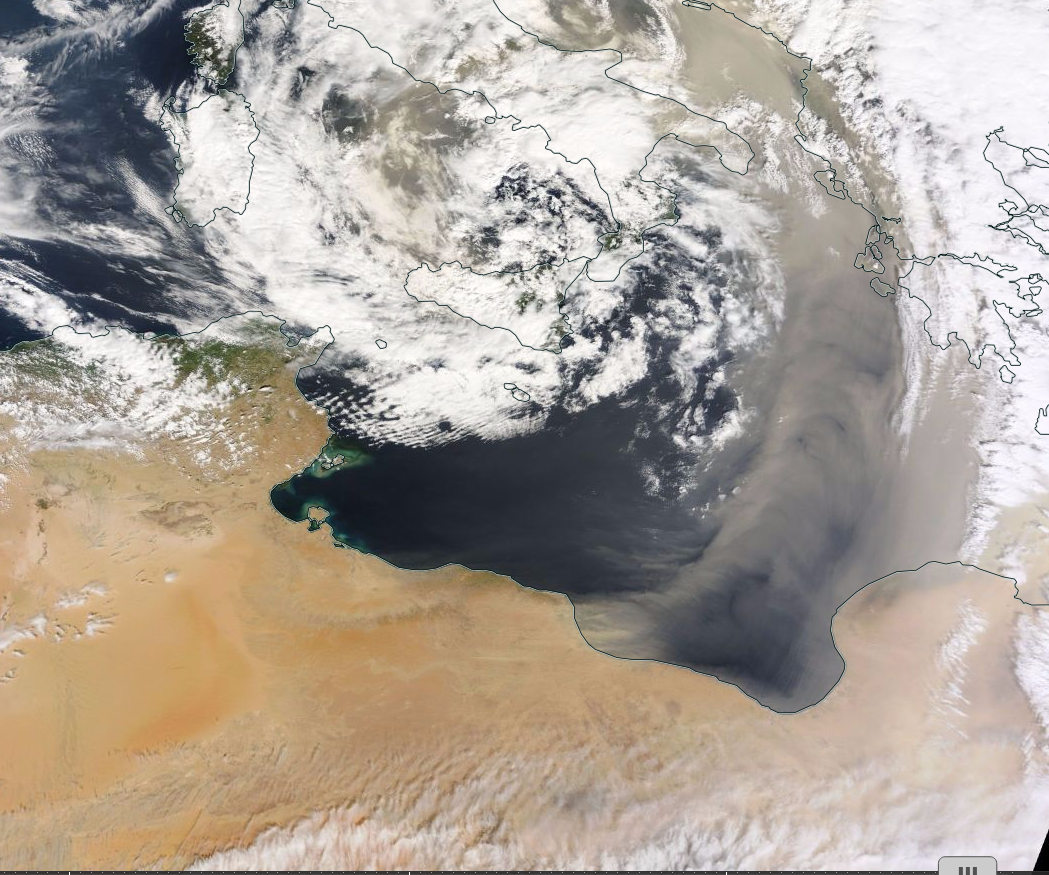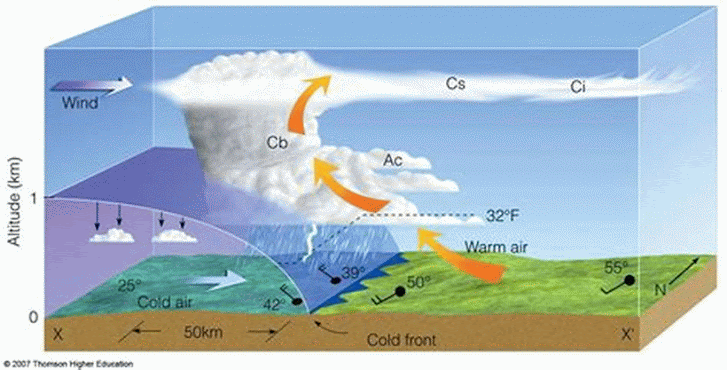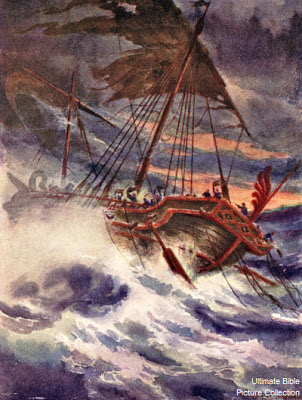The events recorded in Ac 27 (a ship getting caught in an early winter storm due to imprudence and defiance of counsel) are a historical micro case study on how key changes too often have to happen in a community:
Ac 27:8 Coasting along it [the south coast of Crete, in the second ship for the voyage] with difficulty, we came to a place called Fair Havens, near which was the city of Lasea.
9 Since much time had passed, and the voyage was now dangerous because even the Fast [Yom Kippur] was already over, Paul advised them, 10 saying, “Sirs, I perceive that the voyage will be with injury and much loss, not only of the cargo and the ship, but also of our lives.”11 But the centurion paid more attention to the pilot and to the owner of the ship than to what Paul said. 12 And because the harbor was not suitable to spend the winter in, the majority decided to put out to sea from there, on the chance that somehow they could reach Phoenix, a harbor of Crete, facing both southwest and northwest, and spend the winter there.
13 Now when the south wind blew gently, supposing that they had obtained their purpose, they weighed anchor and sailed along Crete, close to the shore. 14 But soon a tempestuous wind, called the northeaster, struck down from the land. 15 And when the ship was caught and could not face the wind, we gave way to it and were driven along. 16 Running under the lee of a small island called Cauda, we managed with difficulty to secure the ship’s boat. 17 After hoisting it up, they used supports to undergird the ship. Then, fearing that they would run aground on the Syrtis, they lowered the gear [–> likely, a sea anchor], and thus they were driven along.18 Since we were violently storm-tossed, they began the next day to jettison the cargo. 19 And on the third day they threw the ship’s tackle overboard with their own hands. 20 When neither sun nor stars appeared for many days, and no small tempest lay on us, all hope of our being saved was at last abandoned.
21 Since they had been without food for a long time, Paul stood up among them and said, “Men, you should have listened to me and not have set sail from Crete and incurred this injury and loss. 22 Yet now I urge you to take heart, for there will be no loss of life among you, but only of the ship. 23 For this very night there stood before me an angel of the God to whom I belong and whom I worship, 24 and he said, ‘Do not be afraid, Paul; you must stand before Caesar. And behold, God has granted you all those who sail with you.’ 25 So take heart, men, for I have faith in God that it will be exactly as I have been told. 26 But we must run aground on some island.”
27 When the fourteenth night had come, as we were being driven across the Adriatic Sea [then, used for waters in the c. Mediterranean E of Sicily], about midnight the sailors suspected that they were nearing land. [–> likely, breakers at Koura point]
28 So they took a sounding and found twenty fathoms.4 A little farther on they took a sounding again and found fifteen fathoms.5 29 And fearing that we might run on the rocks, they let down four anchors from the stern and prayed for day to come.
30 And as the sailors were seeking to escape from the ship, and had lowered the ship’s boat into the sea under pretense of laying out anchors from the bow, 31 Paul said to the centurion and the soldiers, “Unless these men stay in the ship, you cannot be saved.” 32 Then the soldiers cut away the ropes of the ship’s boat and let it go.
33 As day was about to dawn, Paul urged them all to take some food, saying, “Today is the fourteenth day that you have continued in suspense and without food, having taken nothing. 34 Therefore I urge you to take some food. For it will give you strength,6 for not a hair is to perish from the head of any of you.” 35 And when he had said these things, he took bread, and giving thanks to God in the presence of all he broke it and began to eat. 36 Then they all were encouraged and ate some food themselves. 37 (We were in all 2767 persons in the ship.) 38 And when they had eaten enough, they lightened the ship, throwing out the wheat into the sea.
39 Now when it was day, they did not recognize the land, but they noticed a bay with a beach, on which they planned if possible to run the ship ashore. 40 So they cast off the anchors and left them in the sea, at the same time loosening the ropes that tied the rudders. Then hoisting the foresail to the wind they made for the beach. 41 But striking a reef,8 they ran the vessel aground. The bow stuck and remained immovable, and the stern was being broken up by the surf.42 The soldiers’ plan was to kill the prisoners, lest any should swim away and escape. 43 But the centurion, wishing to save Paul, kept them from carrying out their plan. He ordered those who could swim to jump overboard first and make for the land, 44 and the rest on planks or on pieces of the ship. And so it was that all were brought safely to land.
The context is, a cold front’s approach and warm air flowing over it as it wedges in, as we can see with sand-loaded air coming from the Libyan desert in a more recent case:

The air mass movements:

Of course, in 59 AD they did not have satellites nor any clear understanding of cold fronts and associated storms. However, the professional seamen would know typical wind and wind shift patterns, so a warm south wind [from the Libyan desert] could be a sign of an approaching winter storm. So, the technicos — bought and paid for by the Merchant-Owner — were imprudently gambling with the ship, cargo and passengers, that they could beat the cold front to Phoenix, 40 miles away. We can readily reconstruct how the Kubernetes [Sailing Master] likely posed on his expertise and derided that Jew in Chains talking nonsense about risks. Mix in hope for a more comfortable wintering port, and we readily see the way the decision to embark on a voyage of folly was entertained.
The big lesson is, too often communities only learn from pain, especially if those they would naturally look to for leadership are manipulative. But in the end, folly will have damaging consequences.
So, there must be a willingness to take up a counterculture stance, even knowing that at first it will be derided and dismissed. That is the first step to being the good man or woman in the storm. So, it is likely to be, with the restoration of sound moral knowledge.
And, it is obvious that we are in early phases of a civilisation level storm. END
